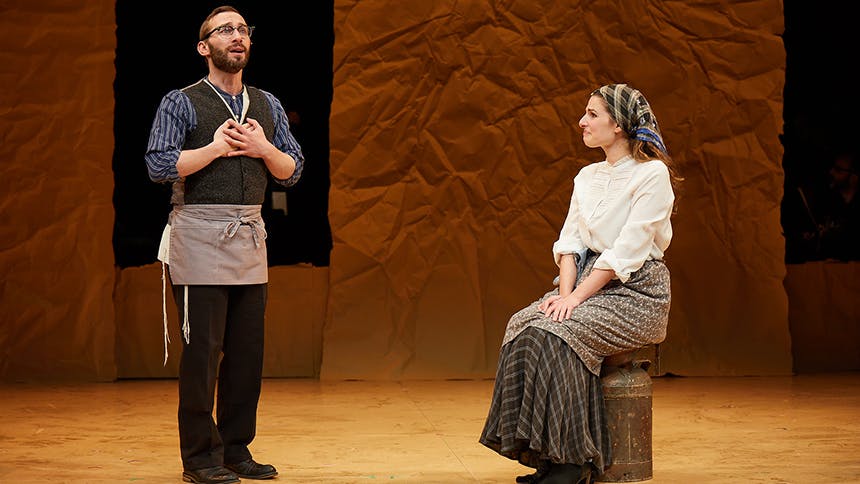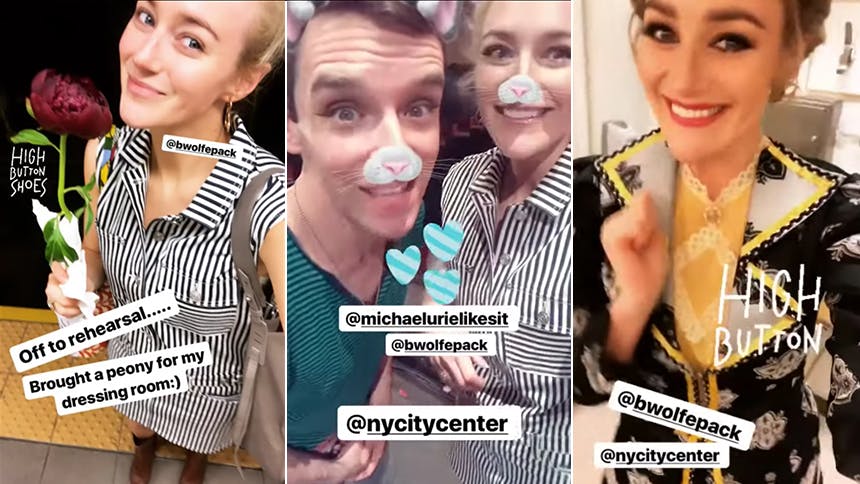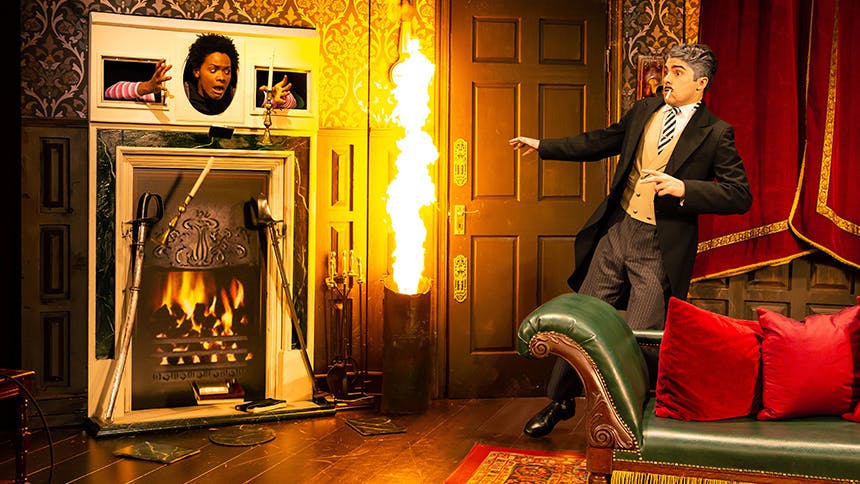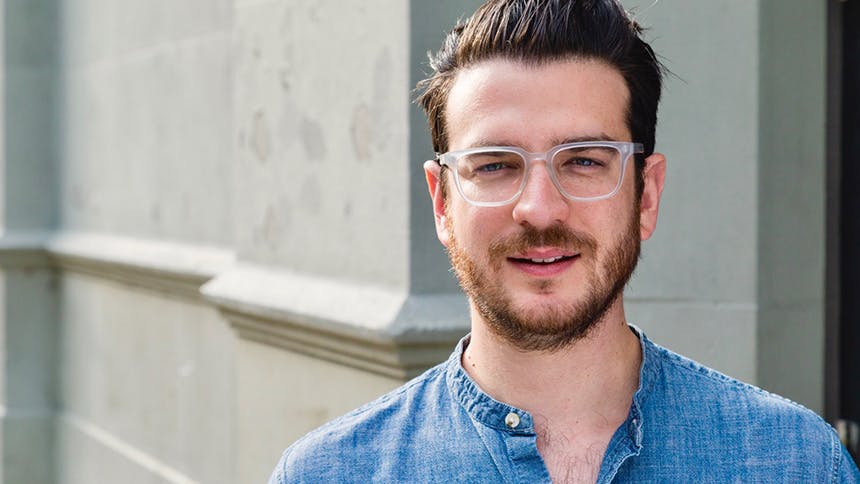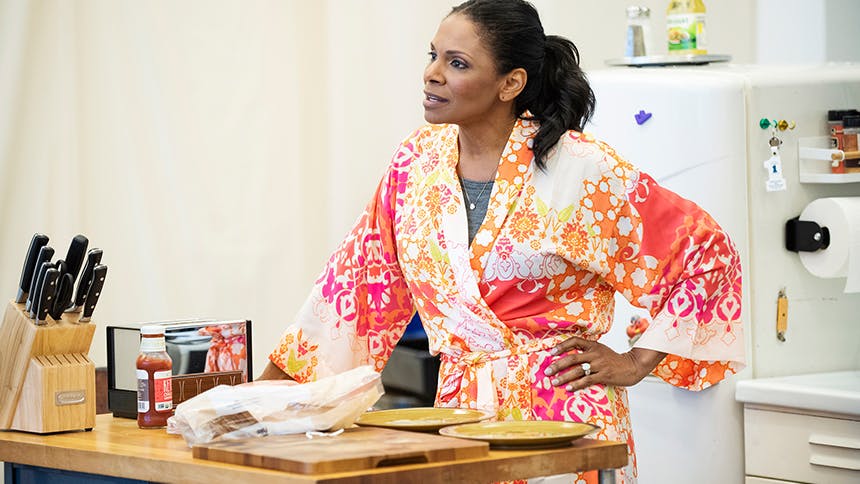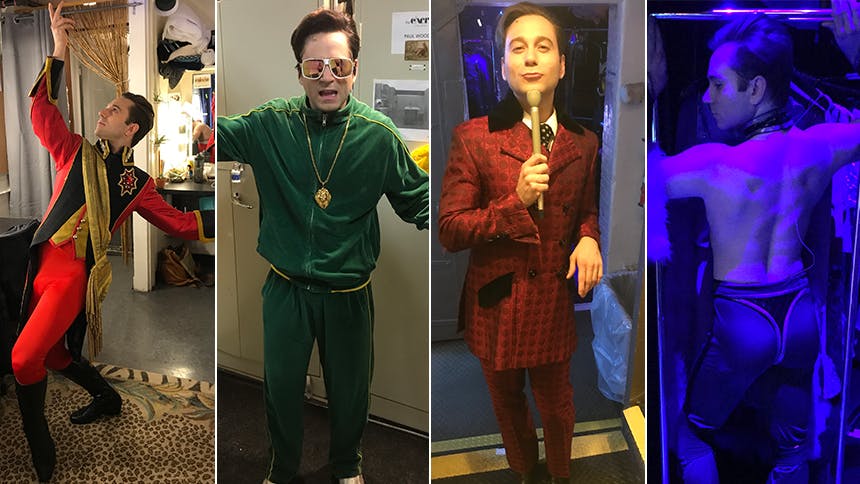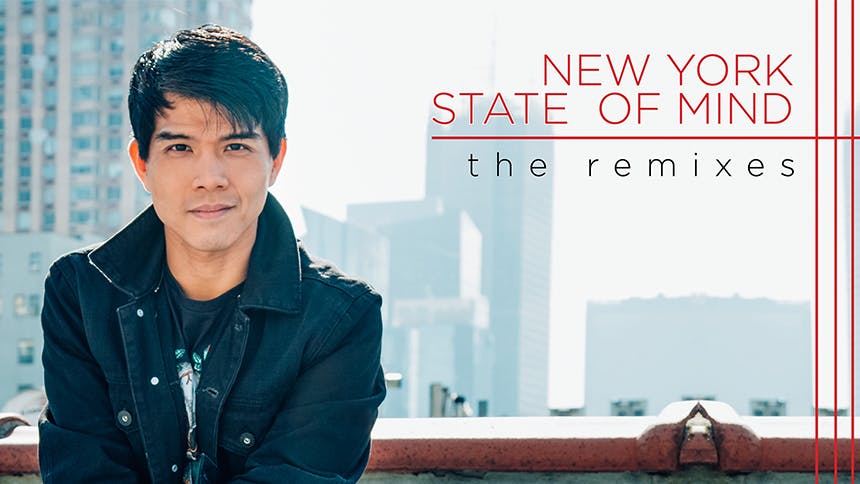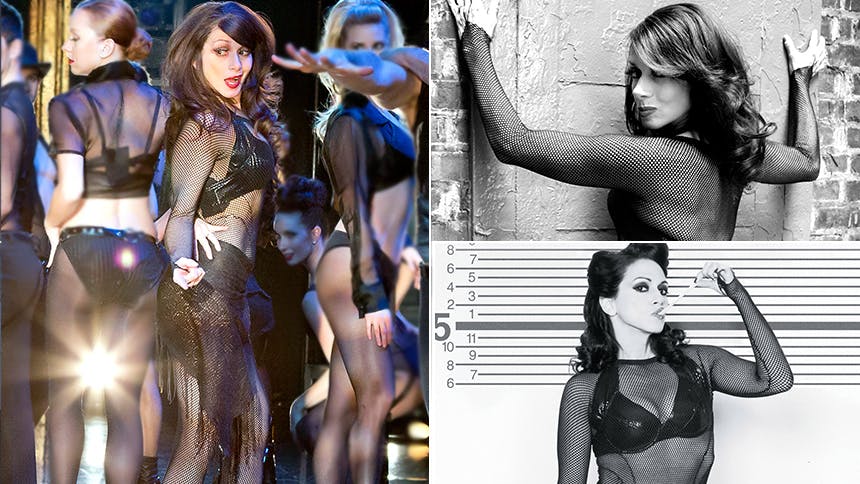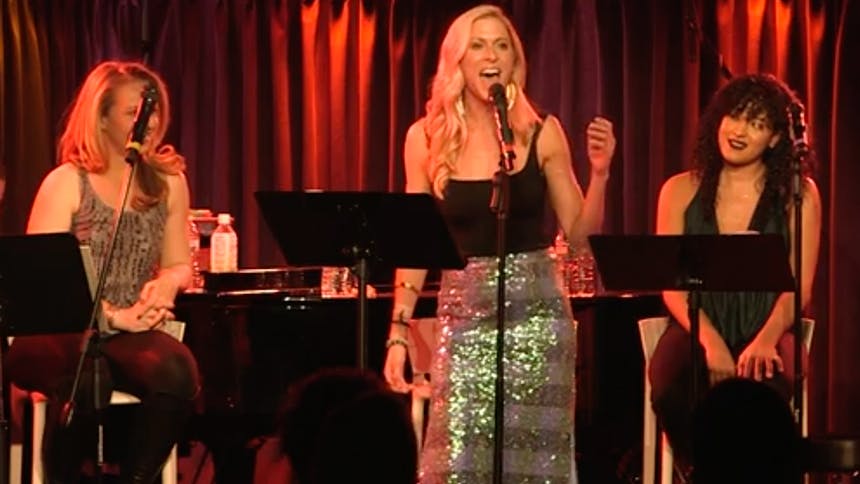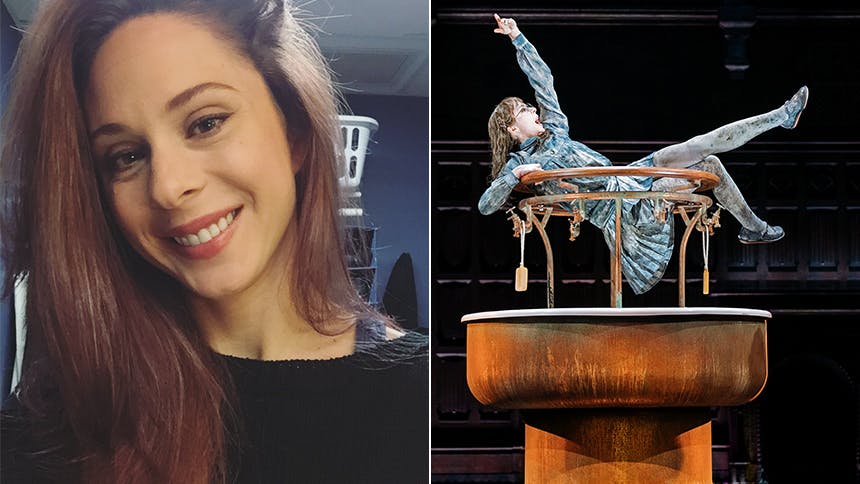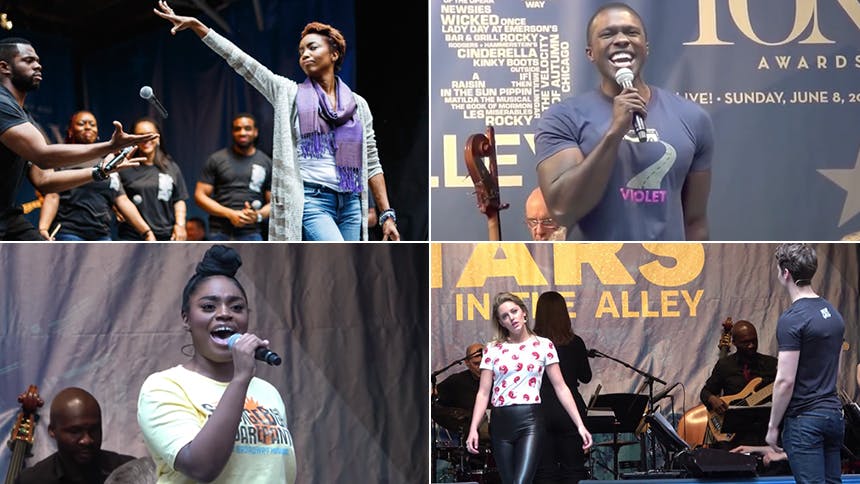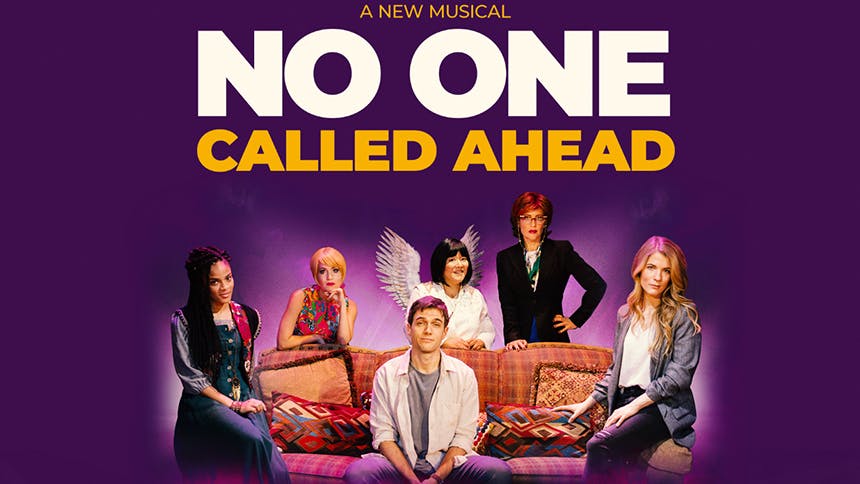If you have even a passing interest in Fiddler on the Roof
, then you have to run and see the award-winning off-Broadway revival directed by Oscar and Tony winner Joel Grey. Performed in Yiddish with English subtitles, this Fiddler on the Roof is incredibly powerful and feels so current, in large part because of the fantastic, grounded performances. This month, we spotlight each of Fiddler’s onstage couples, and begin with the wonderful Rachel Zatcoff & Ben Liebert, who co-star as Tevye’s eldest, Tsaytl, and the tailor Motl Kamzoyl. Read on as the pair discuss crafting their characters, important traditions, and their connection to the beloved musical.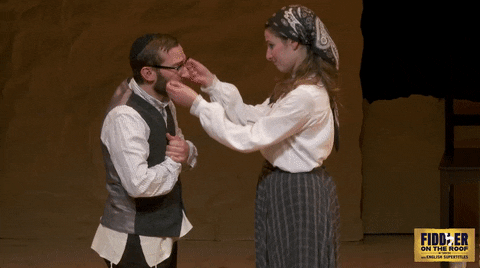
What was your first introduction to Fiddler?
Rachel:
My childhood was filled with Fiddler. It was the first of many musicals my grandparents took me to see in a local Philly regional production. I watched the movie A LOT as a kid. I was pretty obsessed with it. I have very clear memories of watching certain parts over and over again. But I vividly remember fast-forwarding through "The Dream" because Fruma Sarah scared me!
Ben:
My brother (sound designer Josh Liebert) played the Rabbi’s son in high school. I was in middle school and was so enthralled with the show, even with the Casio keyboard fiddle. I then dove into the album and the movie. Here was a musical about the Jewish people, my people, that wasn’t Joseph… I also nerded out pretty hard when I discovered that Zero Mostel, star of one of my favorite movies The Producers, also played Tevye...and Pseudolus. Did I mention I was a theater nerd?
Why do you think Fiddler feels so important and relevant right now?
Rachel:
Our world is going through an interesting time. Our country is stirring. Unfortunately, I think the concept of being pushed out and sent away from one's home is quite relevant right now. For many. Anti-Semitism still surrounds us. In times of change, despair, or tragedy, we often lean towards our faith. That is universal and something I think our audiences (Jewish or not) are holding in their hearts. It is devastating, but hopeful. The show feels like a giant hug right now. For our company and our audience. A giant hug.
Ben:
It’s impossible to see Fiddler and not draw parallels to the plight of refugees, those escaping Syria or Sudan or Central America or countless other places, all of whom are fleeing their homes with the hope there’s a better future ahead. The oppression of a people for religion or race is a story that continues to be told, whether by Fiddler on the Roof or by the nightly news. Fiddler has the opportunity to remind American audiences that even though your family may have come over generations ago like Tevye’s family, there are still people across the world living this story right now.
What is a tradition that is important to you (could be a religious tradition or even a pre-show ritual)?
Rachel:
A pre-show ritual of mine is looking up. Before I enter the stage for each show, I find a time to tilt my head back & look up for a few. Up to the ceiling and lights and height of the space. It fills me with what came before me, where I am, and where I get to go. It grounds me in where my spirit lives on that particular day. It holds me and lifts me up. It is something I've always, always done.
Ben:
I love Passover. The seder is a spring Thanksgiving-sized event where we retell the story of the Jews’ escape from Pharaoh and slavery. The seders in my family have always included non-Jews, and it’s so important for me to share the tradition and story of Passover with those who didn’t grow up with it. And this year, I hosted my first seder, continuing what my grandmother and aunt and mother have done for decades. It was fun but oy there’s so much cooking.
When crafting your performance, what was the most important thing director Joel Grey said to you?
Rachel:
Joel Grey taught me that vulnerability and strength can exist at the same time. He taught me how to listen. He is open and excited by the evolution of a character. He created a safe and focused space. He was constantly correcting my posture. Joel would literally just start yelling, "Rachel! Shoulders! Neck! Rachel! Neck! Rachel! You're beautiful. Let us see your face! PUT YOUR SHOULDERS BACK!" My scene partners would look at me like, "What did he just say?" It drove me WILD, but ya know what? It changed everything for me. I became hyper-aware of my body & my breath. I was able to open up when my body felt open. Damn it! He was so right. He is always right. I just love him.
Ben:
Joel and I had a conversation early on where he said, “I know what you’re doing. You’re trying a lot of different things, which I have done. But it’s a little...schticky.” That word, “schticky,” hit me like a ton of bricks. I was trying to find Motl and all his basket of fears and neurosis while still honoring the comedy. Then Joel gave me three guiding words: simple, honest, and pure. “Motl is the purest character in the play.” With that, I worked to see the character through new eyes and felt permission to toss out the expectations I thought surrounded any actor playing him. And you know what? I found a sweet, pure version of this little tailor who loves a milkman’s daughter, who isn’t also a basket case. And the comedy came back, deeper and more honest than before, just like Joel knew it would.
How has your performance changed or grown since you first took on the role? Is there anything you feel like you know about the character or their relationship now that you didn’t before?
Rachel:
My performance has changed quite a bit since we started. I think I've found a way to soften Tsaytl as the production has gone on. She is tough, don't get me wrong. Strong-willed, determined, and head held high. A pioneer woman, I like to say. But there are moments & relationships she has with her Motl & her Papa where she allows herself to collapse or fall—in joy and in fear. She is messier at the core. I think I have found beauty in the mess, with the help of Joel. I've discovered a lot about myself through Tsaytl. She has been a gift to me in so many ways.
Ben:
We had the great fortune of going back into rehearsals between the downtown and uptown productions, where we really took a look at the whole show again. In the scene where Motl finally gets the courage to ask Tevye for Tsaytl’s hand, Joel really focused on the line, “Even a poor tailor is entitled to some happiness.” This is what Tsaytl says to Motl early in the play and Motl repeats to win over Tevye. In that one line, I found that Tsaytl is the source of Motl’s courage. It’s her love that makes him grow, not just this opportunity to stand up for himself. He is constantly in risk of failure due to his own self-doubt, and, if not for her words in his head, he truly might give up and let her marry the butcher. It has been really rewarding to add this layer of specificity into my scenes with Tsaytl, the phenomenal Rachel Zatcoff. I really have the best scene partners in the business.
This is such an incredibly moving production. What’s the most emotional you’ve been as an audience member in the theatre?
Rachel:
This is easy for me to answer. The closing performance of The Light in the Piazza on Broadway. It was the summer between my first and second year of college, and it was my sixth time seeing the show. I was...a devoted fan. I saved up money from my summer job, spent a lot of money to get a ticket to the final performance, and drove to NYC from Bethany Beach, Delaware & back all in one day. The show meant a lot to me. I loved the piece. I still cherish the story and music so much. It was the first time I ever went to the theatre by myself. A final performance of anything is an emotional rollercoaster. I'll never ever forget it. It assured me that I wanted to do this for the rest of my life.
Ben:
Come from Away was a pretty special experience. Yes, it’s a well written show, beautifully directed and choreographed, and performed by a killer cast of actors. But I’ve never been in an audience where every person has a visceral, personal connection to the material. We all remember where we were on 9/11 and it’s impossible not to imbue the play with our own memories. I cried throughout the whole show, not just in remembering the tragedy of that day but in celebration of the humanity and charity of the characters onstage. Damn, it’s good.
Tell me about someone else’s moment in Yiddish Fiddler that you look forward to each night.
Rachel:
My favorite part of our show is "Do You Love Me?", which is lived through so beautifully each and every performance by our Tevye (Steven Skybell) & Golde (Jennifer Babiak). When the show started downtown, I would sit every single night backstage on one of Tevye's milk-jugs and listen. It is right before my entrance for "The Rumor", and so I'm always back there early to catch it. It might be one of the most perfect duets ever written for a musical. If you really want to be destroyed...come see/hear it in our production. Because I could just die.
Ben:
When Tevye considers whether to let Tsaytl and Motl marry, I have the great pleasure of being in a freeze and watching Steven Skybell work. He’s every buzzword from acting class all rolled into a magnificent artist: in-the-moment, grounded, emotionally connected, and on and on. His performance is so beautifully nuanced and natural, and I get a masterclass nightly.
I also get a front row seat for “The Bottle Dance”. There is always electricity in that number because the bottle could actually fall. No magnets or velcro, just a heavy bottle, a good hat, and four pros underneath.
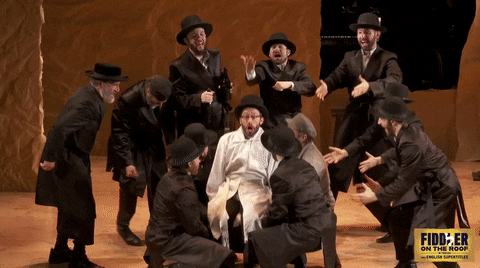
Don’t miss Rachel and Ben as Tsaytl and Motl in Fiddler on the Roof at off-Broadway’s Stage 42.
